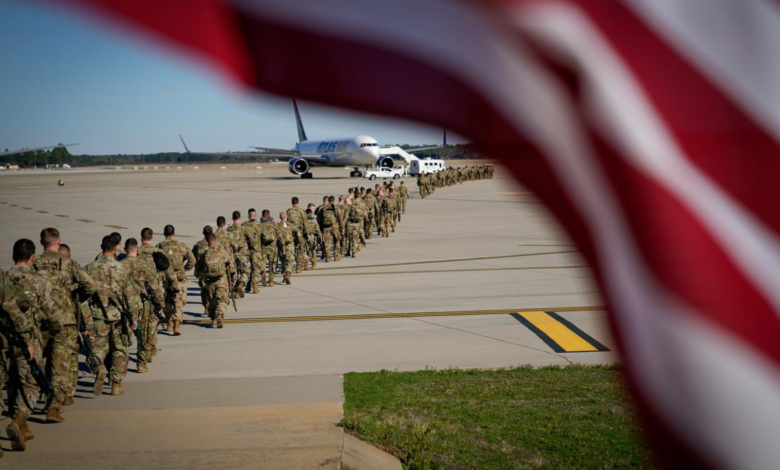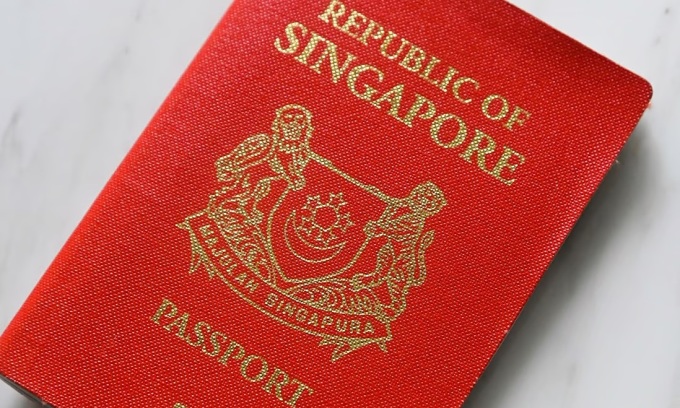Iran Warns U.S.-led Mideast Defense Systems To Cause Tension, Sow Division
Washington's efforts to incite confrontation against Iran would "only drive the crisis-stricken region towards the verge of more instability and turmoil," Arwin Ghaemian, an analyst on the Middle East, wrote recently on the website of Iran's Tasnim News Agency.

Days before U.S. President Joe Biden’s trip to the Middle East, the United States said it is working to bolster coordination of regional air defense systems, prompting Iran to dismiss such a notion as “provocative.”
“Bilaterally we’re talking with nations across the region about air defense capabilities specifically and what we can do to assist with their defense and then, exploring the idea of being able to kind of integrate all those air defenses together,” John Kirby, coordinator for strategic communications at the U.S. National Security Council, told reporters Thursday.
In response, “the Islamic Republic considers the statement as a threat against its national security and also regional security,” Iran’s Foreign Ministry spokesman Nasser Kanaani said Saturday.
IRANOPHOBIA CAMPAIGN
Washington’s plan for potential military cooperation against Iran’s growing missile and drone capabilities dates back months, as The Wall Street Journal reported in June that the United States convened a secret meeting of top military officials from Israel and Arab countries in Sharm El Sheikh, Egypt, in March.
According to Iran’s English daily Tehran Times, Biden’s visit will take place on July 13-16 but “rumors and speculation about its agenda” have spread in the region. Kirby’s comments gave substance to the speculations of a U.S. plan to form a military alliance against Iran in the region a la NATO, it noted.
“Experience has shown that stockpiling arms cannot bring security,” Kanaani said.
As for the purpose of Washington’s efforts to advance closer military ties between its Middle Eastern allies, Kanaani said that the United States raises and pursues such issues out of “its own illegitimate interests” and merely for the purpose of “portraying Iran as a threat and sowing division in the region.”
Meanwhile, Iranian lawmaker Homayoun Sameyah Najafabadi said on Monday that the United States constantly pursues the project of spreading Iranophobia in a bid to find more customers for its weapons and generate additional revenues.
DOUBTFUL PROSPECTS
Yet, such an alliance as “the much-touted future Middle East-NATO” may be “overly ambitious or even utterly wishful,” Marwan Bishara, a senior political analyst at the Qatari Al-Jazeera news channel, wrote on Monday.
“Make no mistake, Israelis will never fight, let alone die, in defence of Gulf security. Ever,” Bishara emphasized.
Even among Gulf Arab countries, while some of them see Iran as an enemy and believe it should be dealt with on this basis, others believe that dialogue with Iran is the safest way to solve their differences, analysts said.
Qatar and Oman currently enjoy good ties with Iran, and Kuwait maintains cautious relations with Tehran. Saudi Arabia and the United Arab Emirates are wary of Iran, but they have also been conducting fairly open negotiations with Iran.
Iran, under a new foreign policy agenda called neighborhood policy, has been patching up its relations with some neighboring Arab states since 2021, Tehran Times pointed out.
Iranian and Arab officials have exchanged visits over the last few months and they continue to keep in close contact with each other, it said, adding that Iran’s President Ebrahim Raisi has traveled to many countries, including Oman and Qatar, in a bid to advance the country’s foreign policy goals.
DESTABILIZING FACTOR
Washington’s efforts to incite confrontation against Iran would “only drive the crisis-stricken region towards the verge of more instability and turmoil,” Arwin Ghaemian, an analyst on the Middle East, wrote recently on the website of Iran’s Tasnim News Agency.
Likewise, “the entry of foreigners into any regional processes not only does not create security and stability but it will work as a factor in causing tension and sowing division,” Kanaani warned.
Any effort to pave the way for beefing up the presence of the United States in regional security mechanisms will “have no outcome but insecurity, instability and expansion of terrorism across the region,” he added.
The creation of a joint defense pact in the region by the United States with participation and hidden management of Israel is “a threatening act,” Nour News, affiliated with Iran’s Supreme National Security Council, tweeted on Sunday.
“If the implementation of such plans threatens security of Iran in any way, it will face initial decisive response to the nearest & most accessible targets,” it added.







